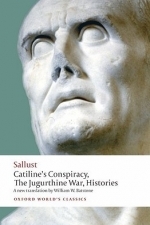
Jakarta Airport + Flight Tracker CGK Garuda Lion citilink Sriwijaya
Travel and Weather
App
Flight tracker premium. #1 airport app For Jakarta and every airport (2500+) you get: +Live...

Catiline's Conspiracy, the Jugurthine War, Histories
Book
Sallust was one of the first classical historians to move beyond a dry recitation of fact to paint...

Berlin Airport-Tegel TXL Schönefeld SXF
Travel and Weather
App
Flight Tracker Premium. Berlin Tegel Airport (TXL) and Schönefeld Airport SXF is the main airport...

Melbourne Airport (MEL) Flight Tracker Radar
Travel and Weather
App
Flight tracker premium. #1 airport app For every airport (2500+) you get: +Live Arrival and...

Foursquare City Guide
Food & Drink and Travel
App
Find the best restaurants, bars and more. Foursquare City Guide will lead you to the perfect spot --...

The Italian Teacher
Book
Rome, 1955 The artists are gathering together for a photograph. In one of Rome's historic villas,...
Merissa (13765 KP) rated Bad Romance (Billionaire's Club #16) in Books
Mar 14, 2023
When Ash turned Mel down, it was for all the right reasons (or so he thought.) He quickly found out his mistake and had to live with the consequences. Mel called Ash in her hour of need, even though she regretted doing so. Once the lines of communication opened between the two of them, things started working out better. Ash knew just how much to push Mel, to bring her alive without being threatening. He also knew when to fall back, to give her time and space to regroup. Their relationship builds over time, step by careful step, until Mel is ready to move forwards.
Rome and Maddie are next, with a sneak preview in the epilogue - which was perfect for Ash and Mel, by the way. My heart is aching for him and I really can't wait to read how Maddie can help. The Hutchins family is definitely one I love and can't wait to read more of. HIGHLY recommended by me.
** same worded review will appear elsewhere **
* A copy of this book was provided to me with no requirements for a review. I voluntarily read this book, and the comments here are my honest opinion. *
Merissa
Archaeolibrarian - I Dig Good Books!
Mark @ Carstairs Considers (2478 KP) rated Every Time I Go on Vacation, Someone Dies in Books
Aug 15, 2024
The premise of this one sounded fun, and I was intrigued when I heard that there are footnotes in the book. Sadly, the footnotes didn’t add anything; in fact, they came across as self-indulgent at times and lazy at others, like when the author put character descriptions in them. And I’ll call out the foul language, which was especially excessive at the beginning. (See your footnote complaining about calling out foul language didn’t work.) The characters were shallow, and some of their relationships and issues seems like issues that could have been resolved quickly. Eleanor herself doesn’t seem to fit her backstory. Yes, the characters grew, but it wasn’t quite enough for me. The pacing in the book was off as well, although there were some good twists. I did enjoy the virtual trip to Italy. In the end, this book wasn’t nearly as clever as it thought it was, so the result wasn’t as entertaining as I hoped it would be.



